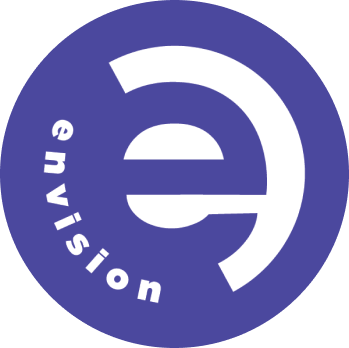ccr support
Envision partners with CDC Project Officers to respond to CCR-2109 recipient requests by consulting on program implementation and connecting them to curated resources.
TA Requests
To submit a TA Request you must access the CDC’s AMP (Award Management Platform) website using the button below
Office Hours
Are you a CHW, supervisor, or program manager looking for dedicated time to connect, engage, and receive support on topics that matter to you? Look no further! Our Office Hours provide the specialized guidance and resources you need to thrive.
Technical Assistance Offerings for CCR-2109 Recipients
1. Preparing your Program for Community Health Workers (CHWs)
a. Introducing CHW roles and responsibilities internally and externally (e.g., to clinical partners)
b. Integrating CHWs into team workflows and communication/collaboration protocols
c. Understanding CHW certification and process.
d. Creating program plans to maximize CHW contributions to health promotion and community resiliency
e. Selecting a referral management platform
2. Recruiting and Onboarding CHWs
a. Best practices and resources for recruiting, hiring, and retaining CHWs
3. Professional Development Opportunities
Best practices and resources for, and connections to, CHW training Potential available training may include ;
a. Access to CHW certification, where available
b. Training of trainers (e.g., preparing CHWs to train others)
c. Skills and knowledge building
i. COVID-19 and chronic diseases
ii. Motivational interviewing
iii. Community outreach, home visit preparation
iv. Patient-centered action planning
v. Documentation
vi.Facilitation
vii. De-escalation and safety in communities, including during home visiting
viii. Self-care
d. Working with focus populations, including:
i. Rural residents
ii. Farm workers
iii. Youth
iv. LGBTQIA+ community
v. American Indian, Alaskan Native, Asian, African American/Black, Latino/Hispanic, Native Hawaiian, or Pacific Islander communities
vi. Older adults (over 65 years of age)
vii. Economically disadvantaged
vii. Justice involved individuals
ix.Pregnant/postpartum
x. Individuals with underlying conditions that increase COVID-19 risk including chronic health conditions and mental illness
xi. Disability community
xii. Individuals with limited English proficiency or limited literacy
xiii. People without health insurance or those who are underinsured
4. Supporting CHWs
a. Recruitment, hiring and retaining CHW supervisors
b. Best practices for CHW supervision
c. Achieving programmatic goals (e.g., SMART objectives, documentation)
d. Preventing burnout and promoting retention
e. Strategies for addressing system issues (e.g., racial equity, addressing root causes of health inequity, the role of social determinants of health in the community)
5. Sustaining CHW Programs
a. Promoting leadership development and career opportunities for CHWs
b. Engaging CHWs in evaluation and/or data collection plans and activities
c. Guiding systemic change to support the strategic design, sustainability, implementation, and/or integration of CHW programs
d. Building effective partnerships, including those networks, or coalitions that foster CHW leadership
e. Funding and reimbursement strategies, including working with healthcare payers in the public and private health systems to incorporate CHWs into professional care teams
This is by no means an exhaustive list. We are fully aware of the diverse needs and requests that require additional technical assistance. As part of a well-resourced team, we are dedicated to providing quality resources and support to assist organizations in creating long-lasting and sustainable CHW programs.

